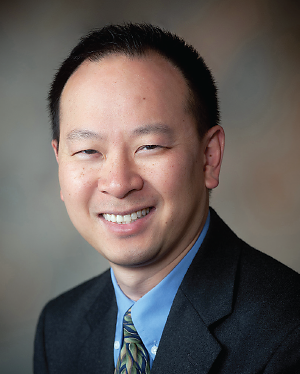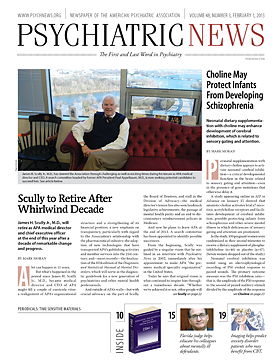“I’ve worked with survivors of disasters from 9/11 on, but this was the toughest thing I’ve ever done,” said Anthony Ng, M.D., after returning home to Maine from five days helping out in Newtown, Conn., after the December 14, 2012, shooting at Sandy Hook Elementary School.
On ordinary days, Ng is the chief medical officer at Acadia Hospital in Bangor, Maine, and chief of the psychiatry service at Eastern Maine Medical Center in Bangor. He has also served on APA’s Committee on the Psychiatric Dimensions of Disasters.
Within a day of the tragedy, Ng got a call from Rob Yin, L.I.S.W., manager of the disaster mental health program for the American Red Cross, asking him to go to Newtown. Besides his long experience helping people cope with the psychological aftermath of disasters, Ng previously worked closely with the Red Cross and knew how the organization manages the mental health side of its response.
“You need to be trained and prepared for disasters,” Ng told Psychiatric News.
Ng arrived in Newtown on the Sunday following the shooting and worked with family members of victims at a center set up in a local mental health clinic. (Other people in need of counseling were seen by Connecticut Psychiatric Society members and others working with the Red Cross at the Reed Middle School [Psychiatric News, January 4].)
At one point, Ng met with the father of a boy who was killed in the attack. What the man needed, however, was not sophisticated psychiatry.
“Just simple things,” said Ng. “Support, psychological first aid, simply being there.” The man talked a lot about his son. At one point he pulled out photographs of the boy.
“I want you guys to see how he looked,” he said.
“I’m a parent, and so this really hit home,” said Ng.
The man did not seem to have a lot of outside support. On learning that the man didn’t have a suit to wear to his son’s funeral, Ng and someone from the FBI’s Victims Assistance Program took him to a store to buy one. Later, the man also asked Ng and a Red Cross worker to go with him to the funeral.
“No amount of medical school or psychiatric training prepares you to see this,” said Ng. “The whole town was suffering though funerals, memorials, and wakes.”
Ng is concerned about the future of the people he saw in Newtown, and not just regarding clinical issues. The well-intended donations or possible financial settlements that come in the wake of tragedies may create new problems, as became apparent after the Exxon Valdez and BP oil spills, he said.
Deciding which recipients or aid agencies should or should not get funds and how much each receives can be a messy process. “In my experience with other big disasters, the sudden surge of financial donations in support of the response and recovery efforts can easily generate a lot of tension,” said Ng. “So it is important that psychiatric leadership be aware and even be involved in the postdisaster financial response, too.” ■

